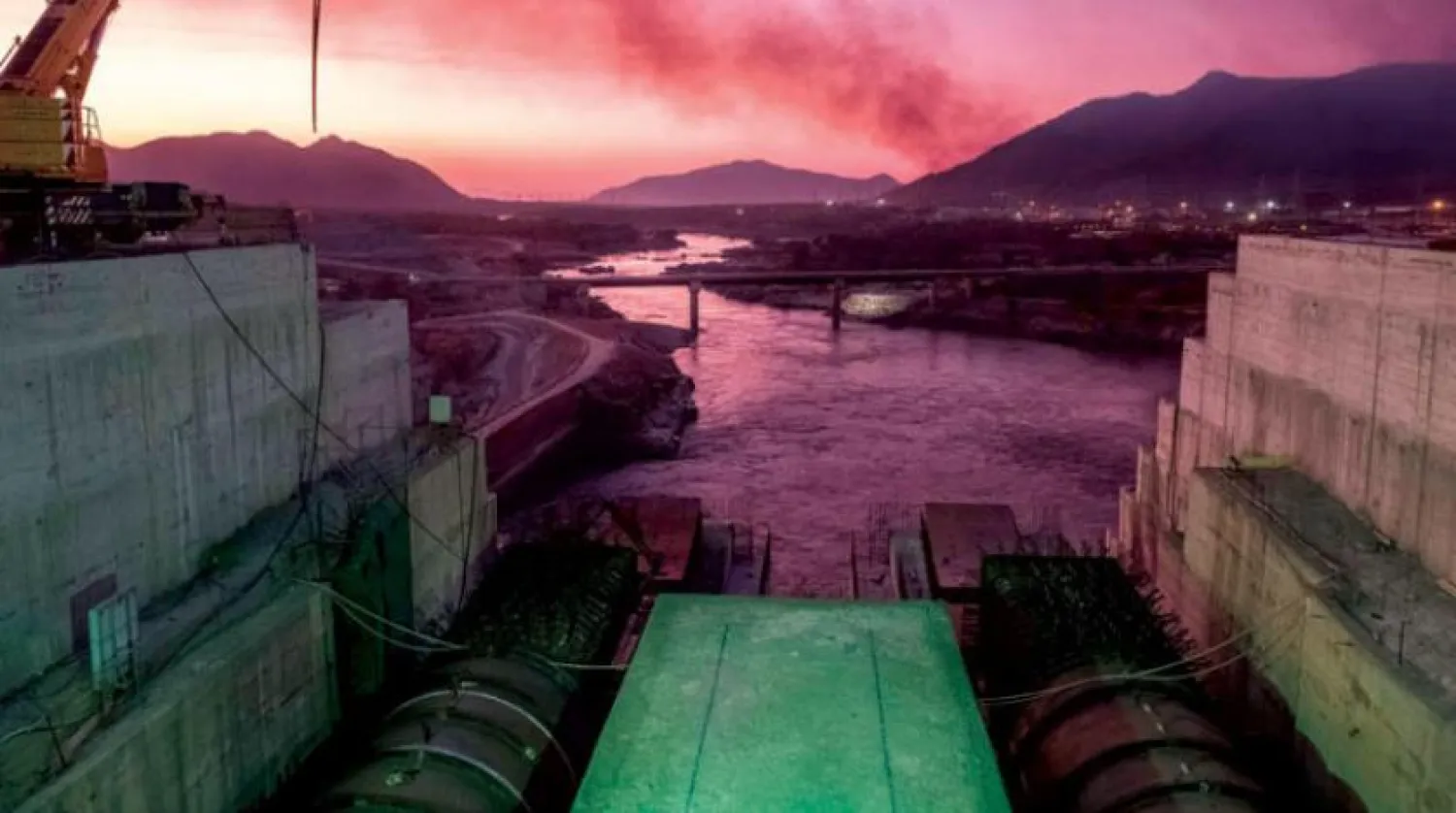Egypt, Ethiopia, and Sudan resumed negotiations on the Grand Ethiopian Renaissance Dam (GERD) for the sixth day on Tuesday, in which “legal matters” were discussed.
Egypt adheres to signing “a comprehensive agreement to fill and operate the dam, legally binding Ethiopia to protect its water rights before starting the filling process of its reservoir early July, an official source told Asharq Al-Awsat.
The source stressed the importance of completing “all technical and legal aspects of the agreement, including the dispute settlement mechanism, before announcing any positive outcomes of the negotiations.”
Talks have been held via videoconference, in the presence of observers from the United States, the European Union, and South Africa (President of the African Union).
Egypt pre-empted Tuesday’s meeting by brandishing “other options” in case parties fail to reach an agreement.
Egyptian Foreign Minister Sameh Shoukry said his country will have to discuss other options like resorting to the UN Security Council, affirming that Ethiopia’s position “doesn’t indicate positive results.”
Sudanese Minister of Irrigation and Water Resources Yasser Abbas has earlier revealed differences in the legal aspects on the agreement’s obligations and means of amendment.
Yet, he later announced that talks have so far made “significant progress in the technical matters.”
He said great progress has been made in the technical matters related to the dam's safety, the first filling and long-term operation, the exchange of data and environmental studies, and the Technical Committee for Cooperation.
The amount of flowing water throughout the year determines the number of years the dam will be filled, Abbas stressed, noting that future studies and environmental impacts are included in the negotiation documents.
Sudan had proposed raising the negotiations to the level of premiers in case a consensus is not reached, but Ethiopia and Egypt preferred to continue the negotiations at the current level, the Minister said.
A statement by Sudan’s Ministry of Irrigation on Monday pointed to the agreement among the three delegations to assign the legal teams to continue deliberations, in the observers’ presence.
According to Ethiopia's official news agency, parties reached an understanding during the meeting on Monday on the “first stage of filling, the volume of environmental flow, guidelines for the first stage of filling, approach to drought management rules, dam safety rules, the environmental and social impact of the assessment studies, and the entry of guidelines and rules into effect.”
Ethiopia stressed “the necessity of adopting an approach that guarantees the joint responsibility of the three countries in case of drought, while preserving the optimal operation of the dam."









